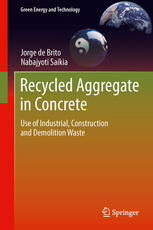

Most ebook files are in PDF format, so you can easily read them using various software such as Foxit Reader or directly on the Google Chrome browser.
Some ebook files are released by publishers in other formats such as .awz, .mobi, .epub, .fb2, etc. You may need to install specific software to read these formats on mobile/PC, such as Calibre.
Please read the tutorial at this link: https://ebookbell.com/faq
We offer FREE conversion to the popular formats you request; however, this may take some time. Therefore, right after payment, please email us, and we will try to provide the service as quickly as possible.
For some exceptional file formats or broken links (if any), please refrain from opening any disputes. Instead, email us first, and we will try to assist within a maximum of 6 hours.
EbookBell Team

4.4
52 reviewsConcrete is the most used man-made material in the world since its invention. The widespread use of this material has led to continuous developments such as ultra-high strength concrete and self-compacting concrete. Recycled Aggregate in Concrete: Use of Industrial, Construction and Demolition Waste focuses on the recent development which the use of various types of recycled waste materials as aggregate in the production of various types of concrete.
By drawing together information and data from various fields and sources, Recycled Aggregate in Concrete: Use of Industrial, Construction and Demolition Waste provides full coverage of this subject. Divided into two parts, a compilation of varied literature data related to the use of various types of industrial waste as aggregates in concrete is followed by a discussion of the use of construction and demolition waste as aggregate in concrete. The properties of the aggregates and their effect on various concrete properties are presented, and the quantitative procedure to estimate the properties of concrete containing construction and demolition waste as aggregates is explained. Current codes and practices developed in various countries to use construction and demolition waste as aggregates in concrete and issues related to the sustainability of cement and concrete production are also discussed.
The comprehensive information presented in Recycled Aggregate in Concrete: Use of Industrial, Construction and Demolition Waste will be helpful to graduate students, researchers and concrete technologists. The collected data will also be an essential reference for practicing engineers who face problems concerning the use of these materials in concrete production.